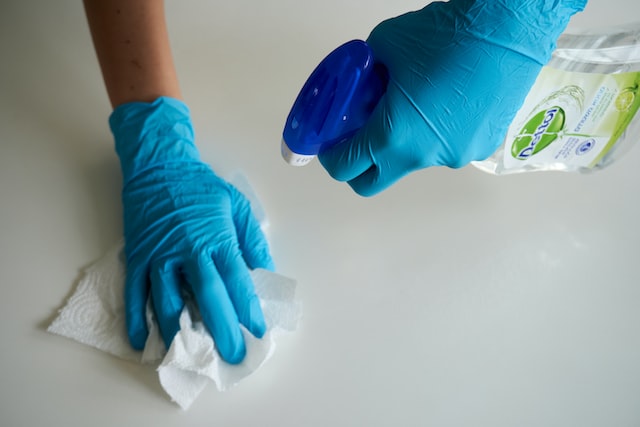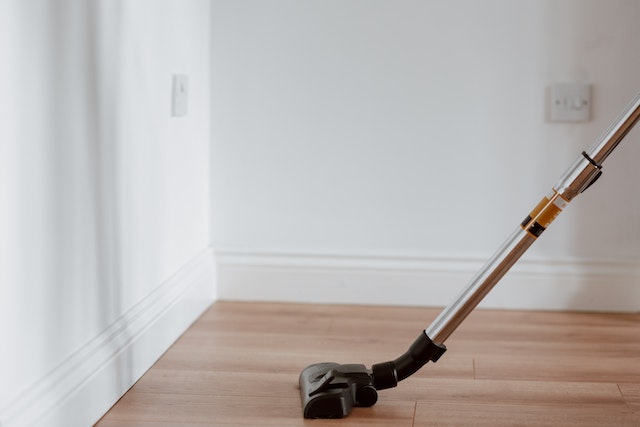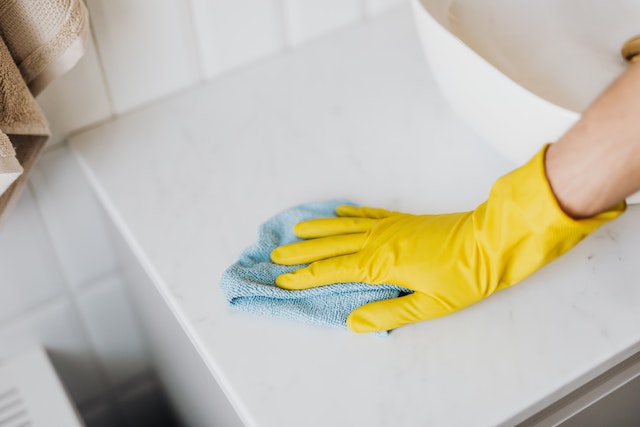
When a tenancy comes to an end, there are several steps that a landlord must take to make the property rent-ready for new tenants. To prepare a property for the marketing process, land qualified tenants, set the standard for cleanliness, and protect the property’s value, an end-of-tenancy cleaning is essential.
The following is what landlords need to know about end-of-tenancy cleanings:
The Significance of End-of-tenancy Cleaning
Setting expectations for how clean your property should stay throughout the tenancy is something you can do by ensuring that your new tenants move into a tidy and sanitized residence.
An end-of-tenancy clean will ensure that your new tenants see the house in the best possible condition, which also raises the likelihood of it being successfully rented.
Cleaning Duties of the Tenant: How Clean is Clean?
Tenants have a responsibility to reasonably maintain the state of the rental property during their tenancy. This includes keeping it tidy and free from hazards.
As a landlord, you can make deductions from the security deposit if the tenants fail to restore the rented space to its original condition. However, you cannot expect the tenants to pay for damages that were already present at the time the property was rented to them. You also cannot charge tenants for natural wear and tear of the property.

To avoid disputes, it’s recommended to take plenty of photos during the move-in and move-out inspections, and supply the tenants with a list that describes the condition of every item that is being supplied to them at the start of the tenancy.
If you find there are any further damages to the property or sanitation issues that go beyond wear and tear, you can use the security deposit to cover the cost of mitigating the issues.
Can You Charge Tenants for End-of-tenancy Cleanings?
When writing the provisions of the rent agreement, special consideration should be given to the issue of the property’s upkeep. As a landlord, you should include terms that specify the relative obligations of both you and your tenant.
You can deduct the cost of end-of-tenancy cleaning from the tenant's security deposit if your lease explicitly indicates that it’s the tenant's responsibility to return the property to its original condition after the tenancy period.
What is Considered Wear and Tear?
It's essential to differentiate between cleanliness and the natural process of deterioration that the property goes through with time when assessing how clean or unclean a tenant has left your house when they move out.

The latter is referred to as "normal wear and tear,” which is both anticipated and not something you may bill a tenant for. Peeling of paint, scruff marks on walls, and fading of curtains are some examples of wear and tear and are therefore not the result of tenant neglecting their cleaning responsibilities.
What Counts as Property Damage?
All unwanted alterations to the property or damages caused by the tenant would constitute property damage. Property damage, in other words, can be a result of neglect.
Example of it includes large holes in the walls, unauthorized paint colors, doors ripped off the hinges, cracked sinks or counters, and broken windows. These are damages that are caused by the tenant, not through normal wear and tear.
The tenant shall be responsible for covering the cost of repairs for any such damages that reduce the value of the property.
Can You Do the Cleaning Yourself?
You can do it yourself if you have the time and supplies, but a professional end-of-tenancy cleaning service provider is most suited for the job. Taking on the responsibility of cleaning the property yourself is a major undertaking. If you opt to do the cleaning yourself, follow the checklist below to assist you:

End-of-tenancy Cleaning Checklist
- Vacuuming and steam cleaning rugs and carpets
- Scrubbing tiles and floors
- Cleaning and disinfecting windows, doors, knobs, and handles
- Wiping down window frames, ceiling, and walls
- Getting rid of dirt buildup in bathtubs, showers, and sinks
- Cleaning and polishing all surfaces
- Cleaning and sanitizing the bathrooms and kitchens
- Washing the countertops and cabinets in the kitchen
- Getting rid of mold
- Cleaning all hardware appliances (television, toaster, microwave, etc.)
- Cleaning drawers, wardrobes, and cabinets
- Unloading and cleaning the refrigerator and freezer
- Cleaning the stovetop and oven
- Cleaning up outside spaces
- Sterilizing dishwashers or washing machines
- Emptying and cleaning dustbins
Additionally, be sure to clean the inside and outside of your windows. You will require a professional window cleaner if your windows cannot be reached. You should also consider giving the unit a fresh coat of paint to brighten up the space, especially if it’s been a while since the last paint job.
Should You Hire a Professional Cleaning Service?
Even if you want to handle the majority of the end-of-tenancy cleaning on your own, some places need expert cleaning to ensure the process is as thorough as possible. Professional cleaners are required for many tasks including upholstery cleaning, carpet steam cleaning, and the appropriate maintenance of any curtains or walls.

Health and safety precautions must be taken, and the correct products/chemicals, materials, and equipment must be utilized while cleaning a property. It’s, therefore, best to employ a team of expert end-of-tenancy cleaners to bring the property up to code.
Bottom Line
End-of-tenancy cleanings help maintain a healthy environment for tenants, and this will go a long way toward helping you build a solid reputation as a landlord. It will also help set a standard of cleanliness to ensure that tenants take excellent care of your property investment.
If you would like help managing your rental properties, reach out to experts at State Property Management LLC. today!